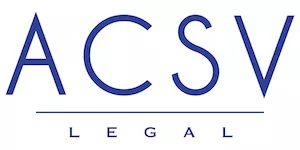- within Government and Public Sector topic(s)
On 06 June 2018, the Government issued Decree No. 86/2018/ND-CP (Decree 86). Decree 86 became effective on 1 August 2018 and provided further regulations and guidance on investment in the education sector. During the period it has been effective, the implementation of Decree 86 has revealed several incompatibilities with other related regulations. This may cause confusion and create unnecessary barriers to investments in the education sector.
The Ministry of Education and Training (MOET) aims to rectify this issue, and as the first step has circulated a draft decree. The draft decree focuses on joint partnerships between local and foreign investors in the education sector. It is important to note that the draft decree is still subject to the collection of public opinions, and further revisions are to be expected.
In this update, we set out some notable key points under the latest version of the draft decree circulated in December 2021.
1. Eligibility on Joint Partnership
The Draft Decree provides more specific conditions to be satisfied by the parties wishing to be in a joint partnership. Unlike Decree 86, the draft decree specifically sets out separate conditions for each type of investor:
- Vietnamese party: Private pre-school educational institutions, private compulsory educational institutions whose investment and operation are made and ensured by domestic investors, established and operating following the laws on Vietnam.
- Foreign party:
-
- Educational institutions operating legally in foreign countries, with direct teaching, having valid certificates of educational accreditation or being recognised by competent agencies or organisations in such foreign countries; and
- Educational program providers legally established in foreign countries, having provided pre-school or compulsory educational programs for at least five years up to the date of application for the joint partnership with the local investor in Vietnam.
2. Capital Plan
The total investment amount required for a high-school educational institution establishment remains 50 billion VND as a minimum. The draft decree further indicates that the instalment plan for this 50 billion VND to be actually contributed must be in line with the expected size of each stage of expansion and operation of the establishment, i.e. the number of learners of each stage. This seems to suggest that the authorities are emphasising the need for investors to take more consideration in balancing the progress of the investment contribution and the business plan of the establishment. In practice, the financial capacity evidence and the investment contribution schedule play a crucial role in the application to obtain the decisions in approving both the establishment of the educational institution and the operation of the same.
3. Investment Registration Certificates
Decree 86 provided only general information on the grounds to approve the establishment of an educational institution. However, the draft decree provides specific legal grounds and references on deciding the issuance of investment registration certificates to establish diverse types of educational institutions. In particular:
- For higher educational institutions: In accordance with the planning of the network of higher education as prescribed in Article 11 of Law on Higher Education (amended and supplemented in 2018).
- For pre-school and compulsory educational institutions: In accordance with the planning contents of the provinces, municipalities as prescribed by Law on Planning.
4. Information Provision of Parties in Joint Partnership
The draft decree sets out requirements on the parties to disclose required foreign parties' information and capabilities for the educational institutions.
In particular, it needs to upload on the website accurate and true information about educational program and inspection results, the number of foreign teachers, the number of foreign learners, mode of examination, and evaluation, other contents as prescribed by the laws. There is an emphasis that the parties shall be responsible for the accuracy of this information.
5. Foreign Educational Program
Decree 86 provided only general information on this point. The draft decree elaborates that any foreign educational program to be taught in Vietnam must comply with the following conditions:
- Be recognised and accredited by competent educational agencies or organisations of the respective foreign country; and be approved by the foreign educational institutions and organisations owing such educational programs for use in Vietnam;
- Not damage the national security and public interests; or spread the religion and distorting history; or negatively affect the cultures, ethics, and traditional customs of Vietnam;
- Ensure the connection between school levels and training levels and the interconnection when students switch to study at public educational institutions as prescribed by the MOET; and
- Ensure that the educational objectives align with Vietnam's educational objectives and comply with the provisions of points a, b and c abovementioned if taught to Vietnamese learners.
6. Operation License
In addition to the application dossier for the operational license specified in Decree 86, the educational institutions that teach foreign educational programs to Vietnamese learners must submit the following documents:
- Compulsory subject programs and educational contents;
- Documents of competent educational agencies and organisations of the foreign countries recognising the quality of education, or valid certificates of accreditation of education issued by legal educational accreditation organisations in the foreign countries for the foreign educational programs expected to be taught to Vietnamese students; and
- Documents of foreign educational institutions approving foreign educational programs in Vietnam.
The content of this article is intended to provide a general guide to the subject matter. Specialist advice should be sought about your specific circumstances.




